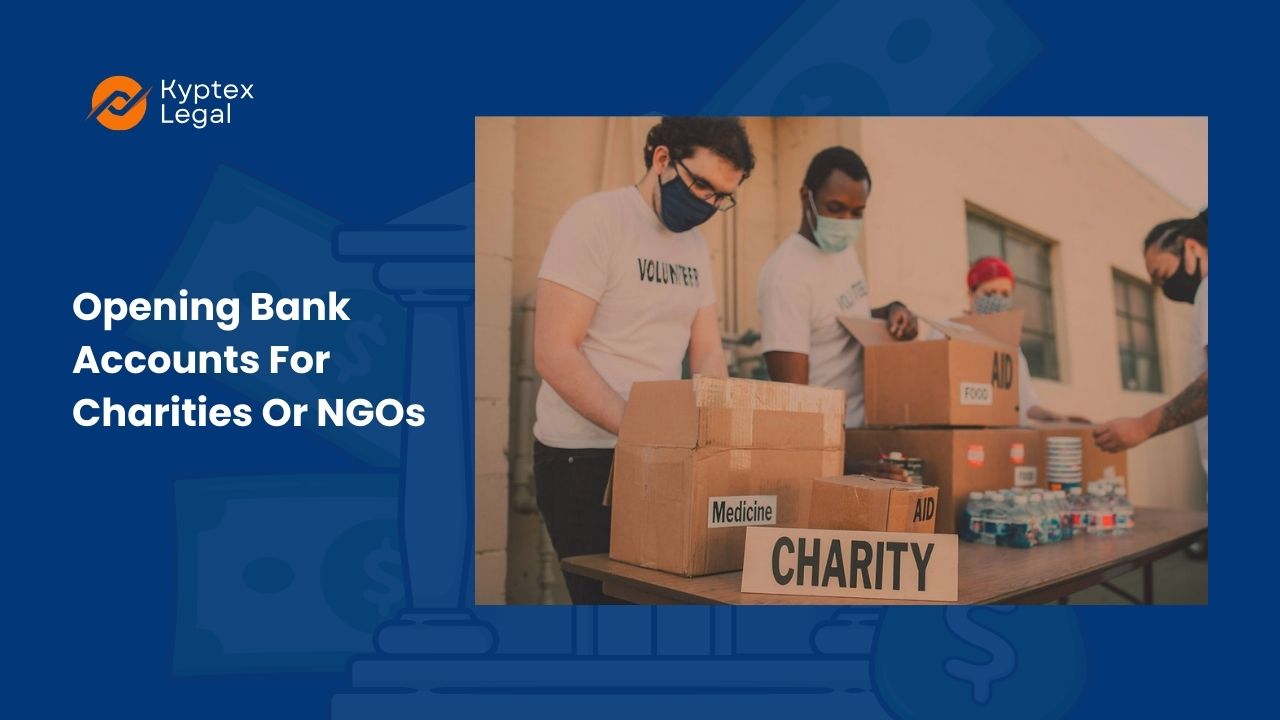
It is not a simple task to establish a bank account for a charity or NGO. The selection of the appropriate banking solution can have a substantial impact on the management of donations, payments, and overall operations, regardless of whether the organization is a newly established charity or an established non-profit that is expanding into new territories.
Why NGOs And Charities Need Dedicated Bank Accounts?
In order to maintain the integrity of their operations and collect funds from donors and benefactors, NGOs and charities must establish dedicated bank accounts. In the absence of an appropriate banking structure, the management of donations, grants, and cross-border payments can become complex, particularly when conducting operations on an international scale. A bank account that is designated for this purpose guarantees:
– Accountability: Financial transparency is essential for regulators, stakeholders, and donors. The provision of clear, auditable records is facilitated by the establishment of a dedicated account that enables NGOs to monitor all income and expenditure.
– Compliance: In order to prevent fraud or misuse, numerous countries have stringent legal requirements for charities, such as the maintenance of separate accounts for personal and organizational funds.
– Ease of Cross-Border Payments: International NGOs necessitate a banking system that facilitates efficient, low-cost remittances with minimal delays in order to manage multiple currencies and cross-border transactions.
Key Steps In Opening A Bank Account For A Charity or NGO
Opening a bank account for a charity necessitates the completion of numerous stages, including selecting the appropriate bank and submitting the requisite documentation. Step-by-step instructions are provided below:
Choose the Right Bank
Banks are not all created equal, particularly when it comes to accommodating the distinctive requirements of NGOs and charities. The following are some of the most important factors to consider when selecting a bank:
– Specialized NGO/Charity Accounts: Certain banks provide exclusive accounts that are specifically designed for non-profit organizations. These accounts may provide specialized services, reduced fees, and improved security measures.
– International Banking Services: It is imperative for NGOs that operate across borders to select a bank that offers low-cost international transactions and supports multiple currencies.
– Reliability: To prevent operational disruptions or fraud, it is crucial to ensure that the bank you choose has a strong reputation for stability and adherence to international standards.
Gather Documentation
The documents necessary to establish a bank account for a charity or NGO may differ by country, but they typically consist of:
– Proof of Registration: Banks typically require proof of registration from NGOs and charities, as they are required to be registered with the appropriate authorities.
– Identification of Trustees or Directors: Banks will be required to confirm the identity of the individuals who are responsible for managing the account, such as the charity’s trustees, directors, or officers.
– Articles of Incorporation or Governing Documents: These documents delineate the organization’s purpose and structure and may be required by the bank to verify that it satisfies their criteria for non-profit accounts.
– Financial Records or Business Plan: In order to evaluate the operational and financial sustainability of newly established NGOs, certain institutions may request a business plan or financial records
Comply With Laws And Regulations
In order to prevent money laundering and fraud, banks are legally required to adhere to KYC and AML regulations. This entails the provision of comprehensive information regarding the organization’s structure, beneficiaries, and funding sources for non-governmental organizations (NGOs).
These regulations guarantee that your organization does not inadvertently endorse illicit activities. It is particularly crucial for charities that operate in regions that are susceptible to corruption or fraud to adhere to these requirements.
Understand Cross-Border Payment Solutions
Managing cross-border remittances is one of the most significant obstacles faced by NGOs that operate internationally. Traditional banking methods frequently involve high fees, slow processing periods, and exposure to currency fluctuations, all of which can have a significant impact on operations.
Manage Transaction Costs
Traditional banks frequently impose concealed fees and delays on cross-border payments and currency conversions. These challenges may be alleviated by nongovernmental organizations (NGOs) through
– Utilizing Integrated Payment Solutions: For instance, digital Fintech platforms offer rapid, low-cost cross-border payment options in over 50 currencies. These platforms eradicate the lengthy delays and exorbitant transaction fees that are commonly associated with conventional banking systems.
– Avoiding Currency Risks: In order to mitigate the risk of fluctuating exchange rates, NGOs that operate in regions with volatile currencies should select platforms that provide secure currency exchange services.
Conclusion
Several factors must be carefully considered when opening a bank account for a charity or NGO, including assuring security in cross-border transactions and compliance with local regulations. NGOs can improve the protection of their funds, reduce costs, and increase financial transparency by selecting the appropriate banking partner.